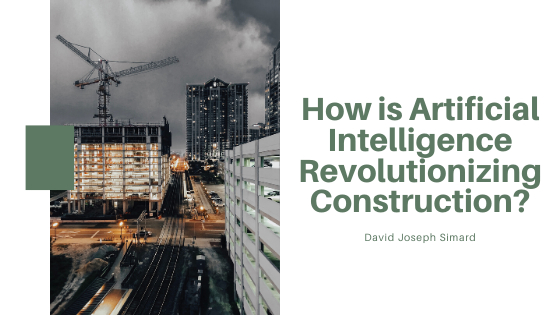Artificial intelligence has been revolutionizing the majority of major industries for more than a decade. As industries convert to using more data and technology, the use of artificial intelligence is expected to keep growing. Adapting artificial intelligence has started to creep into the construction industry and has helped companies transform their productivity and performance.
Artificial intelligence is setting new competitive grounds for construction. Global construction companies have only grown 1 percent per year for the past few decades. Adapting to the latest technologies can help bring global construction into the new decade, make job sites more efficient through machine learning, and help cut growing costs. Artificial intelligence is making an impact across the board, and other industries are taking advantage. It’s time for the construction industry to make the jump for the future of the industry.
What is Machine Learning and Artificial Intelligence
Artificial intelligence is a term that describes how a machine mimics human cognitive functions. Machines can be programmed to problem-solve, recognize patterns, and learn new tasks. All of this is a subset of artificial intelligence. Machine learning uses statistical techniques to give a computer system the ability to learn without being programmed. This makes the machine better at understanding the task and exposes more data points.
How Artificial Intelligence is Used in Construction
Developers and contractors are finding creative ways of improving their work processes. Construction company owners and job supervisors can decide how to implement the operations throughout the company and on the job site. The common areas that this technology is used in include the following:
Estimations
Reasonable estimations can help any business find new clients, and the research completed before pricing a job should help a company build the right pricing structure. AI uses hypothesis analysis when displaying the figures and outcomes, and this analysis can check two sources of data at one time. The final evaluation will give a business the best and most competitive result.
Architectural Design
Artificial intelligence will allow architects to expand their creativity. Design programs are being created to help designers complete images with automated adjustment features. At the same time, other algorithms can analyze what the intent of the design is and provide better measurements as they are designed. By mirroring precise dimensions and completing design patterns via automation, the project designers’ workload decreases.
Data Processing
The core benefit of using computers is established within the processing of data. The more information that builders can collect, the more that they can rely on when making decisions during their construction projects. Artificial intelligence accesses info that a builder can’t and at a faster speed.
Reporting
Construction management programs are designed so subcontractors and superintendents are prompted to complete bespoke reports from the field. This carries over into health and safety reporting as well as financial reporting; all remote from the job site for real time data which can assist leadership teams in decision making.
What the Future Looks Like
Despite predictions of massive job losses because of the integration of AI, the incorporation of the technology will only help further the construction industry. Artificial intelligence will alter many business models in the industry, reduce costly errors, help reduce worksite injuries, and make the industry more efficient. Construction companies should consider the prioritization of investments where AI can have the most impact on their company’s needs.


